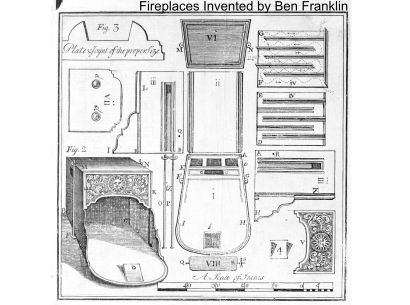This Week's Story
Ben Franklin possessed a fuel that never ceased--curiosity!

This Week’s Story relives American history and the Bible through brief inspiring stories presented on mp3 audio recordings and text for reading.
Huhhh…, yes! A possible solution! part one
“Josiah, tell me about your son Ben. I’m told he is unusually bright.”
“Yes! My question is: what do I do with him? I have seventeen children. Ben is my tenth son, a bit of a rebel, probably because his fuel is curiosity that never ceases.
“I hoped he would become a minister. I sent him to grammar school when he was eight, but I will never be able to afford to send him to college.”
“After he had one year at grammar school, I sent him to a school focused on writing and arithmetic. He rapidly developed writing skills.”
Ben later wrote, “I failed in the arithmetic, and made no progress in it.”
That was the end of Ben Franklin’s two years of formal schooling. It was not the end of his curiosity and energy for learning.
Ben Franklin’s father took him out of school and put him to work in the family business of candle-making. He had no liking for cutting wicks and pouring wax.
His father reported, “I indulged him and took him on walks throughout Boston, the largest city in colonial America. He intently watched men at work using their crafts. He did not want to become a carpenter, bricklayer, or metal worker, but his keen observation imprinted many skills in his brain.
“He later used his observations to make repairs as an adult in his own home. He wrote, ‘what I saw helped me later to construct little machines for my experiments….’”
Ships became a passion for Ben and he had opportunities to learn to handle small boats and canoes. Ben’s father was afraid his son, now age twelve, would run off to the sea and work on a ship. That would be a rough life. Josiah announced, “Son, I have decided to apprentice you to your brother James. You will be required to sign and obey requirements in a contract.”
James was twenty-one years old and had begun a print shop. Ben quickly learned the basics of printing. He had opportunities to borrow books and buy pamphlets. Reading was his greatest passion. He said, “I do not remember when I could not read. I read at night, before work in the morning, and even on Sundays by skipping attendance at public worship.
Ben schooled himself in how to write. He rewrote articles from an English magazine called the Spectator. At age thirteen he published a poem he wrote. It sold well. Ben’s father told him, “Prose is more worthwhile and more profitable.”
Secretly he began writing in prose for the New England Courant, the newspaper his brother James had begun. Ben disguised his handwriting, gave himself a fake name, and slipped letters about a fictitious person under his brother’s door. He was sixteen and adults were reading and praising the letters. He wrote about drunkenness, corruption in Boston night life, the importance of education for women, many topics.
His ambition was growing. He ran away to New York, and then to Philadelphia at age eighteen. He felt guilty for breaking his contract.
He was a voracious worker and by age twenty-four he was in business for himself and was the primary printer in the city of Philadelphia.
Join Carlos Gamez, Todd Warren, and myself, Barbara Steiner, for part two, and more surprises from Ben Franklin.
Please check out thisweeksstory.com.
<< previous story] [next story >>
We invite your comments! [click here to comment]
This Week's Story is a non-profit supported by listeners. [click here to make a donation]
 click here to play audio
click here to play audio